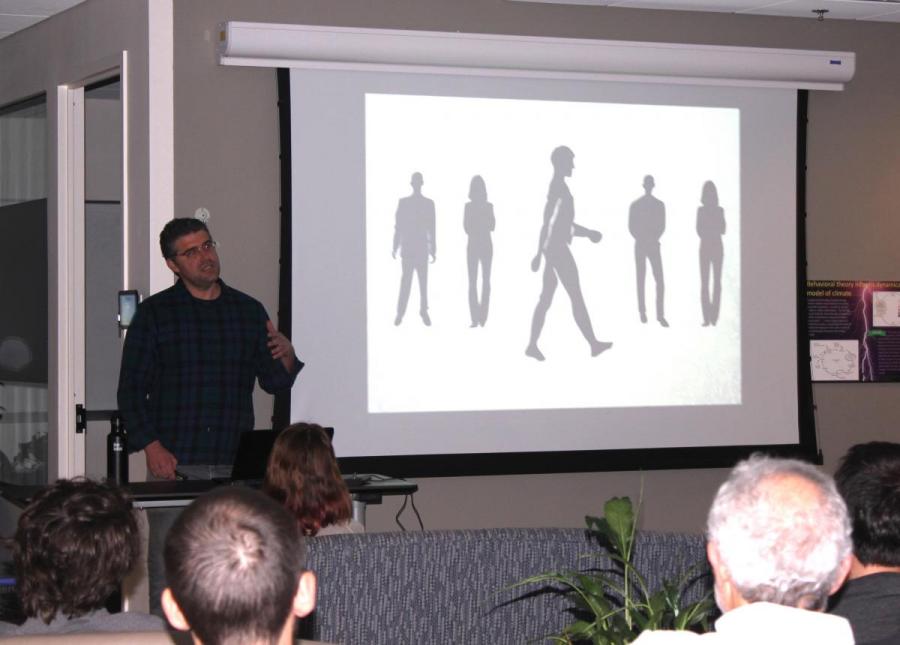
In a recent Immersion workshop on public health, SESYNC postdocs had the opportunity to interact with three public health scholars whose research programs span environmental exposure, feedbacks between human health and sustainability, and mental health and cognition. During the two-day workshop, these scholars covered a range of topics—beginning with the foundations of public health and public health methods and then building to the applied contexts of how to foster community engagement, develop community partnerships, and manage these relationships in an international setting.
Jennifer Vanos, Assistant Professor in the School of Sustainability at Arizona State University, researches the effect of extreme heat and air quality overexposure on human health, especially in vulnerable populations. Her work focuses on a solution-based approach to understanding how we can modify the environment to mitigate these risks. Katie Fiorella, Assistant Professor in the Master of Public Health Program and the Department of Population Medicine and Diagnostic Sciences at Cornell University, explores the links between environmental change and human health and food security in her research. A common research question is how the environment affects human health, but Dr. Fiorella also investigates an under-explored corollary: how human health affects how humans manage the environment. Within the field of environmental psychology, Gregory Bratman, Assistant Professor in the College of Environment at the University of Washington, investigates how our experience of nature affects human cognition and functioning.
One of the interdisciplinary goals of SESYNC involves creating a culture where researchers have appropriate knowledge of other disciplines and have opportunities to engage in dialogue and develop a common language. During group discussions and reflections, SESYNC postdocs were challenged to identify how their research connects with public health research themes. For Xavier Benito-Granell, PhD, a SESYNC postdoctoral fellow focusing on paleoecological questions, resiliency was a connecting theme for the workshop. “[Resiliency] embraces a wide spectrum of disciplines, including public health and ecology, in the sense that communities (individuals, societies, ecological [systems]) have the capacity to adapt and respond to long-term stresses and disturbances,” Dr. Benito-Granell reflected. Likewise, postdoctoral fellow Florian Gollnow, PhD, found that the ecosystem benefits of nature for health and human well-being tied into the conceptual understanding of his research on tropical deforestation.
Social determinants of health were another emergent theme of the Immersion workshop. Many participants learned for the first time that public health researchers quantify human health and well-being as a function of genetics, medical care, and social determinants (e.g., education opportunities, income level, racial segregation). SESYNC postdoctoral fellow, Fushcia Hoover, PhD, a social-ecological urban hydrologist who infuses her research with approaches from environmental justice theory found the workshop to be a valuable experience. “I was motivated and encouraged by the scholars' and workshop’s emphasis on building healthy and happy communities. It was great to see a field [public health] that does not put all the responsibility on the individual but recognizes the institutional drivers that affect health and well-being,” said Dr. Hoover.
This workshop was part of SESYNC’s Immersion Program, which offers a series of collaborative workshops led by distinguished scholars. This program is designed to immerse participants in theories and methods foundational to understanding current environmental challenges and their underlying socio-environmental systems.